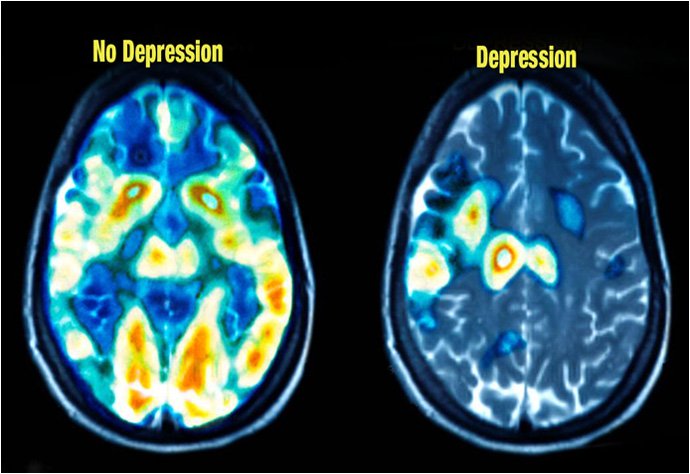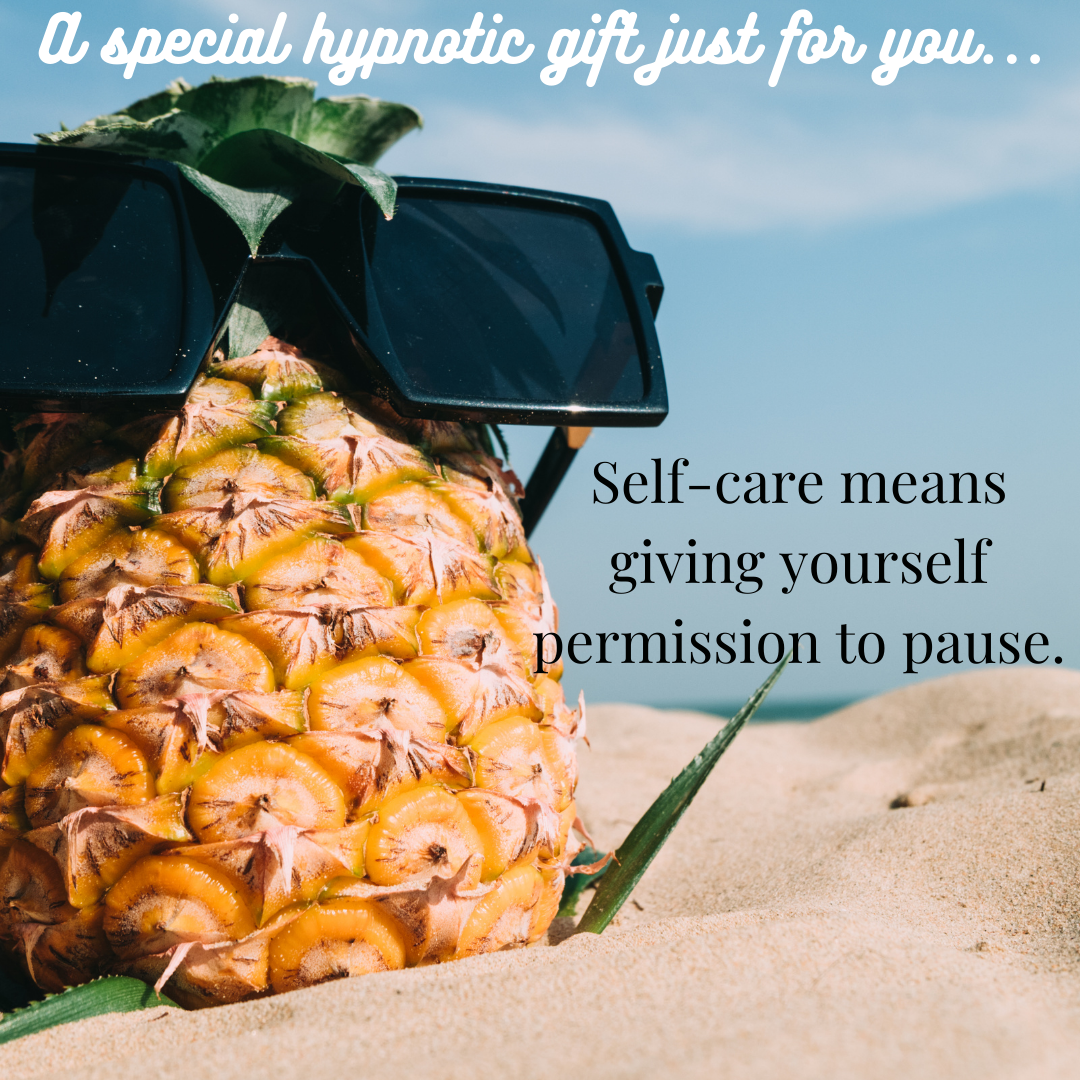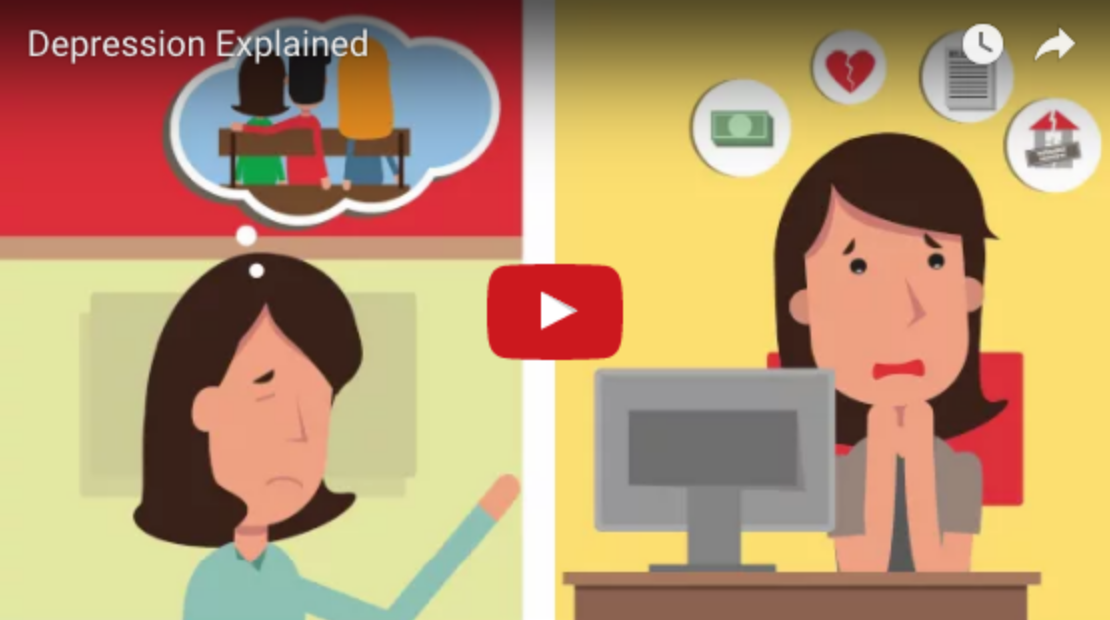The Depressed Brain vs Normal Brain
Look at the depressed brain vs normal brain...
Can you spot any differences?
Depressed Brain vs Normal Brain
There is less neural activity in the depressed brain. So, what's going on? Why is this happening? Depression is the routine activation of certain brain circuits, which we all have, in specific patterns that result in depressive symptoms in a person.
Alex Korb explains the depressed brain vs normal brain this way:
The flow of traffic through a city is complex and dynamic – sometimes jamming up inexplicably and other times flowing smoothly, even at rush hour. The stock market and larger economy follow similar patterns as does the weather and even pop culture. Mathematically, these types of complex dynamic systems share many similarities, including the way the whole system — whether a traffic jam, a tornado, a recession or recovery, a viral tweet, or the next fad — can get caught in a runaway pattern: either an upward or downward spiral.
So why do tornadoes happen in Oklahoma but not in New York? Because conditions are just right — the flatness of the land, temperature changes, humidity, and wind direction and speed. But there’s nothing wrong with Oklahoma.
|
The same is true of your brain. In depression, there’s nothing fundamentally wrong with the brain. It’s simply that the particular tuning of neural circuits creates the tendency toward a pattern of depression. It has to do with the way the brain deals with stress, planning, habits, decision making, and a dozen other things — the dynamic interaction of those circuits. And once the pattern starts to form, it causes dozens of tiny changes throughout the brain that create a downward spiral.
|
Changing the timing of a single stoplight may cause or prevent a traffic jam. A YouTube video may go viral from a single tweet. Sometimes tweaking the tuning of one brain circuit can start to reverse the course of depression.
Depressed Brain vs Normal Brain:
What about neurotransmitters?
When looking at the depressed brain vs normal brain, we all have the same basic brain structure although the neuronal connections, determining the activation of and communication between brain circuits, are unique to every person. The particular circuits excited over and over in your brain become the go-to default pattern for you and are the product of your thoughts, interactions with others and the world, and the events that happen to you.
In the 1960s, we were told depression was due to a deficiency of the neurotransmitter norepinephrine. Then, a still popular theory blamed depression on too little serotonin. Today, we know that it’s much more complicated than either of these and involves many other neurochemicals which influence and are influenced by depression. (For example: dopamine, oxytocin, GABA, melatonin, endorphins, endocannabinoids) To oversimplify, each neurotransmitter tends to contribute to a particular depressive symptom.
Depressed Brain vs Normal Brain:
How do we get depressed?
|
Some factors that influence the depressed brain vs normal brain... Genetics – Genes aren’t your destiny by any means, but they do guide the initial development of your brain circuitry. You can inherit a brain more that’s more likely to become depressed. Research has determined that there’s a genetic component to depression and that as much as 40% of people with depression have a genetic link. If a person has a parent or sibling that has had major depression, they are three times more likely to develop the condition which may be due to both hereditary and environment. Women have a 42 percent chance of hereditary depression, while men only have a 29 percent chance. Early Childhood – Your childhood experiences literally shape your brain. While genes supply the basic blueprint for brain development, experience tweaks brain circuitry, and young brains in a critical window of development are particularly sensitive. |
Stressful or traumatic events in childhood and adolescence dictate the development of neural circuitry and influence the levels of chemicals released in the brain having powerful and lasting effects. The prefrontal cortex of the brain doesn’t finish maturing until a person is in their twenties and is susceptible to stress the whole time.
Stress – The current level of stress in your life is
a big factor affecting which circuits are activated in the brain.
Stress can disrupt a person’s healthy behaviors starting the brain on a
downward slide. For example, stress at work can lead to working longer
hours, which leads to missing exercise and yoga for weeks and not
hanging out with friends or having much time for your partner which puts
you in a funk and causes troubles in the relationship which only leads
to more stress which means losing sleep and binge eating etc… You get
the idea. Recent research has
also shown that chronic high stress kills neurons and prevents the
birth of new brain cells in a region called the hippocampus which is
necessary for a healthy stress response.
Social Support – Humans are social beings who need each other and are meant to be around other people. Numerous studies have shown that close relationships protect against depression. In research, low self-rated social support was associated with higher levels of anxiety and depression. In another study involving depressed college students, lack of perceived social support, described as feeling unappreciated, unloved and un-involved with family and friends, proved to be one of the most powerful predictors of persistent suicidal thoughts, even in the absence of other risk factors.
Luck – (or lack of it) Yes, randomness plays a part here. ~parts adapted via TheBestBrainPossible.com
Depression Explained: A Short Video
Depressed Brain vs Normal Brain:
What can we do?
Seek professional help.
The first thing you need to do if you feel you’re suffering from depression is to seek professional help. A medical professional will be able to diagnose your condition and set you on the right path. This could be medication, depression therapy, or (most likely) a combination of the two. You’ll benefit immensely.
Set your alarm.
During tiring times like this, using an
alarm clock can be most helpful. Set your alarm in the morning so you
don’t end up staying in bed all day long. If you have an important
meeting to attend, or an appointment, set your alarm as well. A constant
reminder of your daily tasks can keep you motivated to do what you have
to do.
Dress up.
Take a long, cold shower, brush
your teeth, apply makeup, and wear a pretty dress. Even if you just work
from home, dress up! Doing this decreases your urge to lounge because
again, you are reinforcing in your brain that you are getting ready for
something.
Move around.
Sweating it out is one way
to boost your motivation and get your body going. Choose an exercise
that works for you. You don’t have to force yourself to do an intense
workout. You simply go with walking, swimming, running, or gardening.
Schedule your tasks/activities.
Schedule
your tasks according to your energy levels. If you think you have more
energy in the morning, you may want to do tougher jobs and reserve the
lighter ones in the afternoon. For bigger projects, consider creating a
timeline of at least one or two weeks (more if necessary). Break a big
task to smaller ones. And don’t forget to incorporate activities that
give you pleasure, such as your hobbies and passion.
Connect with people you love.
Being
with people you love, including your friends and family is one way to
boost your mood. And when you’re feeling good, you are more likely to
motivate yourself to hit your daily goals. Remember that the more you
remove yourself from the environment of depression, the better your
chance of recovery.
Go out.
Leaving the house can be
one of the most difficult challenges people with depression face. One
reason for this is not having a place to go. When your depressed, even
the most entertaining places can be boring and less amusing. But you
don’t have to be somewhere far, different or extraordinary to reap the
benefit of going out. Just take a short walk around the neighborhood or
invite a friend for a cup of coffee, go to the mall and shop, or walk
your dog in the park. ~parts adapted via Andrew Richardson



